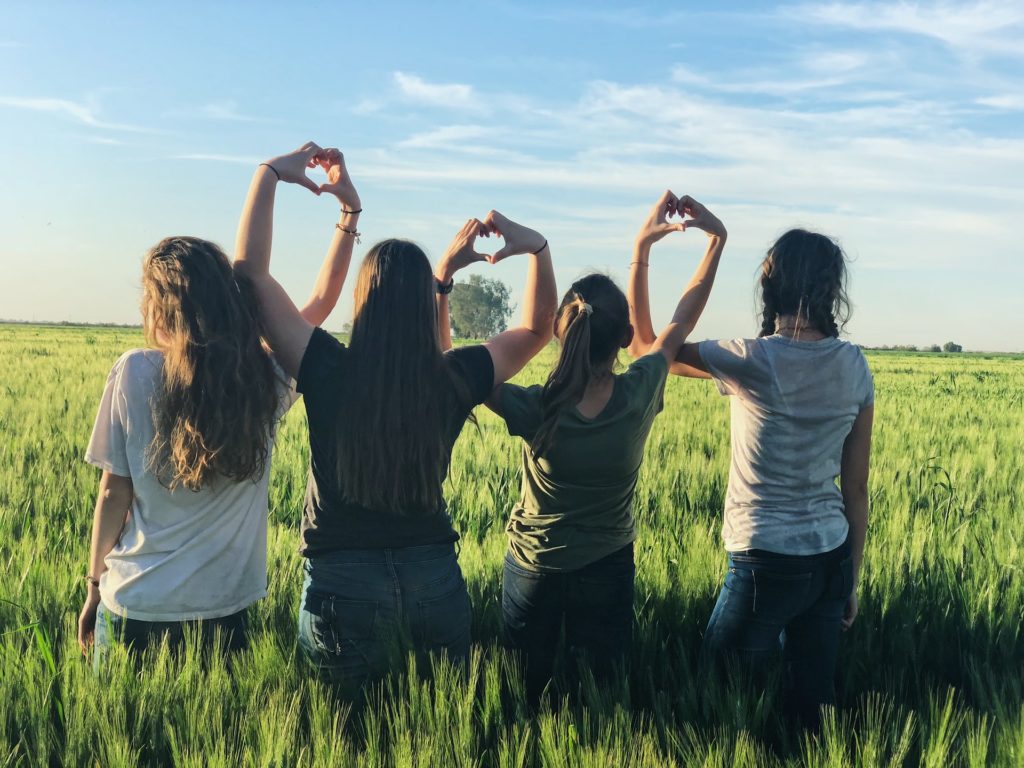Imagine yourself driving down a long, winding road. You’re on your way home and your grueling workday weighs heavy on your mind. A bolt of lightning flashes across the sky, breaking you from your train of thought. It strikes a nearby cluster of trees and ignites the dry evergreen. As the trees are quickly engulfed in flame, they begin to fall, blocking the roadway up ahead.
You have a split-second to react to this new threat. What do you do?
You probably think that you’d react calmly and appropriately manage the situation. In reality, however, your fight-or-flight response will kick-in — and your reaction may be far from usual.
But that’s the funny thing about fear. It can creep in at any time and push us to behave differently than we’d normally expect of ourselves.
So, as you find yourself navigating the tumultuous road of life, how can you overcome fear and improve your resilience to it? And is there a way to surrender yourself to the vulnerability, without getting scorched by the elements, and, instead, transform that fear into fearlessness?
These are important questions, particularly in the context of the current COVID-19 pandemic, in which fear can have incredible consequences to public health. The COVID-19 vaccine rollout, and its accompanying fear response, is a useful prism by which to analyze our evolving relationship with fear, how to mitigate its effects on our health, and how to ultimately reclaim the fearlessness that propels us forward.
The Impact of Not Overcoming Fear: When Fear Goes Viral
Fear is a hardwired defense mechanism to protect ourselves and our loved ones from imminent danger. In the age of COVID-19, this self-protective behavior in response to a rapidly spreading infectious illness is a valuable evolutionary trait that offers us the opportunity to prepare.
Despite this important role, however, letting fear take control can cause us to slowly lose sight of reason and, in the process, ourselves — and, at worst, spread fear to others.
For example, a fear contagion spread rapidly and unconsciously over the past year as SARS-CoV-2 proved ever difficult to contain. Humans are remarkably tuned to detect this response, as watching fear expressed by others lights up the anterior cingulate cortex in the brain. The unfortunate and now painfully clear result is entire cultures gripped by fear.
Amid uncertainty, this signal, which activates your anterior cingulate cortex, can then travel to the amygdala, initiating defensive behavior. Once this response is triggered, however, it can be difficult to control.
Humans often spread fear automatically and unconsciously, and the constant barrage of images and stories we encounter in the news and on social media can keep us feeling fearful. (Michigan Medicine, 2020)

While our fight-or-flight response proves useful in the early stages, continued activation is often unsustainable. It may result in disruptions of our immune system, our mental health, and our spirituality. It may even impact our ability to learn and to find safe harbor (Rosenberg, 2017).
Conversely, the ability to ignore our fears highlights the privileges we have as a modern society that cannot easily recall a time when many fears consumed and threatened our existence. Focusing purely on the visible aspects of the pandemic and our own survival, we fail to recognize the unmistakable toll that fear can have on our overall wellbeing — and the risk that it leaves us, individually and societally, permanently gripped by fearfulness.
By recognizing these misperceptions and the continuous spectrum of the fear response, however, we may find overcoming fear, even momentous instances of it like the one we’re living through now, to be possible. And in doing so, reclaim our fearlessness.
Reclaiming Our Fearlessness
This process of reclaiming our fearlessness begins by recognizing fear’s existence and the power we have to address it.
Fear has evolved as a mode of protection in humans for a reason. However, we ultimately hold the power to change the narrative before it pushes us toward a downward spiral.
Against the backdrop of the COVID-19 vaccine rollout, we can mitigate the continued spread of fear by employing harm reduction strategies, while we work to uncover and resolve its root cause.
Even so, synthesizing the antidote to whatever is causing our fear is seldom easy or straightforward. It generally requires a methodical approach involving research and investigation, until a sustainable path eventually reveals itself.
With that path revealed, we must recognize the incredible work and often collaboration that’s led to this path forward. Doing so is critical so that we can accept the resolution as valid and sustainable, which enables us to move forward and away from our natural fear response.
In the case of the COVID-19 vaccine, the entire world seemingly ground to a halt to work together towards a collective goal. Strength in numbers allowed the world to achieve success at a quickened pace, without compromising the end result. But as the vaccine allows us to finally begin to move on, we must seize upon the work and collaboration that led to it to rediscover our fearlessness.
The Power of Hope to Heal
At this point in the return-to-fearlessness process, hope becomes our greatest asset. The cultivation of hope begins by leading with empathy and kindness. Opening yourself up to this process allows you to more acutely listen to your fears, and the fears of others. As you do, sit in the stillness and lean into the discomfort it will likely create.
In allowing yourself to experience this vulnerability, you can begin to cultivate meaningful change based on your experience. By overcoming fear and sharing hope you will create the opportunity to heal — for both yourself and others.

In the case of something like the COVID-19 pandemic, this understanding, sharing, and the revealing of a path forward is what allows us to move forward together, not only bound by our fears and experiences, but also a testament to the sheer resiliency of the human spirit.
Throughout this process, don’t be afraid to take time to pause and re-evaluate as needed, adapting as the immune system does in response to new challenges. In maintaining transparency and keeping an open dialogue with yourself and others, you can help curb the unconscious spread of fear and help improve our societal resilience to it.
Overcoming Fear — and Then Transcending It
In time, you’ll find the strength within to overcome the storm, letting your brave, courageous self begin to flourish again. Keep calm and trust the process that’s continuing to develop within you. With this rediscovered fearlessness, you’ll find yourself on the way to something far better than what was before.
I believe that we’re nearing such a point with the pandemic. We are approaching the day in which we can finally shed our fears and reignite the fire of fearlessness within us as we recover the connection that transcends fear: our humanity.
References
1. Michigan Medicine. (2020, May 1). Fear Can Spread From Person to Person Faster Than the Coronavirus: Psychiatry: Michigan Medicine. Department of Psychiatry. https://medicine.umich.edu/dept/psychiatry/news/archive/202005/fear-can-spread-person-person-faster-coronavirus
2. Rosenberg, J. (2017, November 11). The Effects of Chronic Fear on a Person’s Health. AJMC. https://www.ajmc.com/view/the-effects-of-chronic-fear-on-a-persons-health.
Image credits: KAL VISUALS, Olesya Yemets and Melissa Askew.
